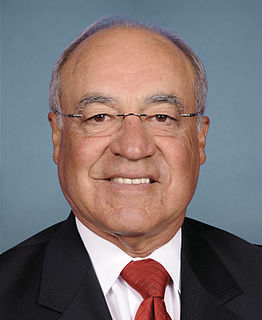A Quote by Joe Baca
We learned in World War II that no single nation holds a monopoly on wisdom, morality or right to power, but that we must fight for the weak and promote democracy.
Related Quotes
It's very important to understand that World War II is at the base of this new policy. From the 1890s on, the U.S. was always imperialistic. We went after the Philippines, and we did the same in Cuba, in Hawaii. We controlled South America. Woodrow Wilson was not what he was supposed to be. He was very much a white man first. "The world must be made safe for democracy." It really accelerates after World War II.
I think in many ways, the Spanish Civil War was the first battle of World War II. After all, where else in the world at this point did you have Americans in uniform who were being bombed by Nazi planes four years before the U.S. entered World War II? Hitler and Mussolini jumped in on the side of Francisco Franco and his Spanish nationalists, sent them vast amounts of military aid, airplanes, tanks - and Mussolini sent 80,000 ground troops as well - because they wanted a sympathetic ally in power. So I think it really was the opening act of World War II.
It's important to remember that World War II was experienced very much as a continuity in that sense. Most of World War II in most of Europe wasn't a war; it was an occupation. The war was at the beginning and the end, except in Germany and the Soviet Union, and even there really only at the end. So the rest of time it's an occupation, which in some ways was experienced as an extension of the interwar period. World War II was simply an extreme form, in a whole new key, of the disruption of normal life that began in 1914.
If the benevolent ruler stays in power long enough, he eventually concludes that power and wisdom are the same thing. And as he possesses power, he must possess wisdom. He becomes converted to the seductive thesis that election to public office endows the official with both power and wisdom. At this point, he begins to lose his ability to distinguish between what is morally right and what is politically expedient.
However, there is a fundamental difference between the issue related to Japan's history and our negotiations with China. What is it all about? The Japanese issue resulted from World War II and is stipulated in the international instruments on the outcomes of World War II, while our discussions on border issues with our Chinese counterparts have nothing to do with World War II or any other military conflicts. This is the first, or rather, I should say, the second point.
World War II made war reputable because it was a just war. I wouldn't have missed it for anything. You know how many other just wars there have been? Not many. And the guys I served with became my brothers. If it weren't for World War II, I'd now be the garden editor of The Indianapolis Star. I wouldn't have moved away.

































